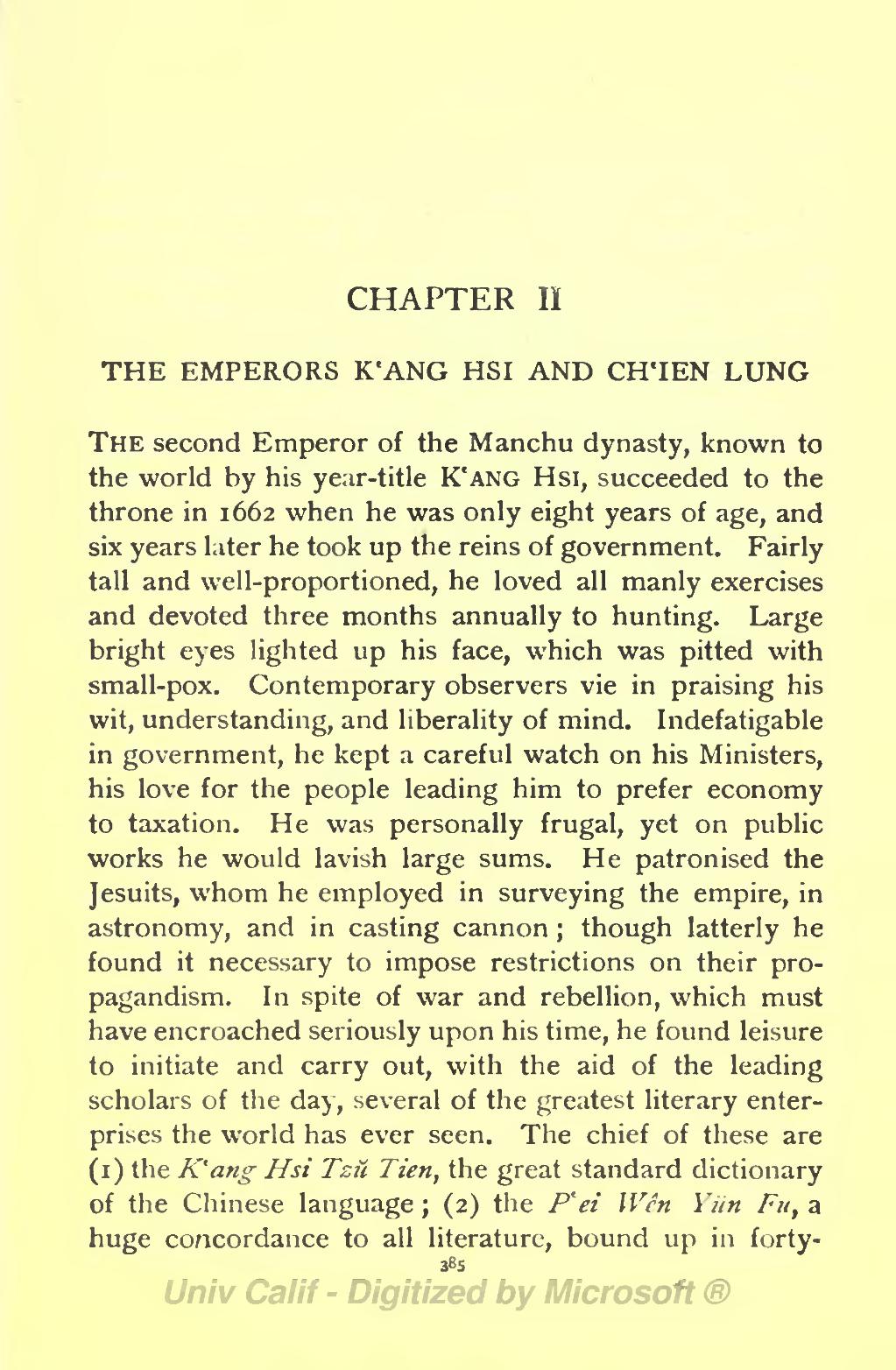CHAPTER II THE EMPERORS K'ANG HSI AND CH'IEN LUNG
THE second Emperor of the Manchu dynasty, known to the world by his year-title K'ANG Hsi, succeeded to the throne in 1662 when he was only eight years of age, and six years later he took up the reins of government. Fairly tall and well-proportioned, he loved all manly exercises and devoted three months annually to hunting. Large bright eyes lighted up his face, which was pitted with small-pox. Contemporary observers vie in praising his wit, understanding, and liberality of mind. Indefatigable in government, he kept a careful watch on his Ministers, his love for the people leading him to prefer economy to taxation. He was personally frugal, yet on public works he would lavish large sums. He patronised the Jesuits, whom he employed in surveying the empire, in astronomy, and in casting cannon ; though latterly he found it necessary to impose restrictions on their pro- pagandism. In spite of war and rebellion, which must have encroached seriously upon his time, he found leisure to initiate and carry out, with the aid of the leading scholars of the day, several of the greatest literary enter- prises the world has ever seen. The chief of these are (i) the K l ang Hsi Tzii Tien, the great standard dictionary of the Chinese language ; (2) the P l ei Wen Yiin Fu, a
huge concordance to all literature, bound up in forty-
�� �
